Search Posts
Recent Posts
- RI Veterans: Did you know? 25.04.24 (100th for Louis Dolce, events, resources) – John A. Cianci April 25, 2024
- Business Beat: Bad Mouth Bikes takes home 3 national awards April 25, 2024
- Rhode Island Weather for April 25, 2024 – John Donnelly April 25, 2024
- We Cook! Mill’s Tavern’s Cajun North Atlantic Swordfish, Mango Salsa, Cilantro Citrus Aioli April 25, 2024
- The Light Foundation & RI DEM’s 4th Annual Mentored Youth Turkey Hunt a success April 25, 2024
Categories
Subscribe!
Thanks for subscribing! Please check your email for further instructions.
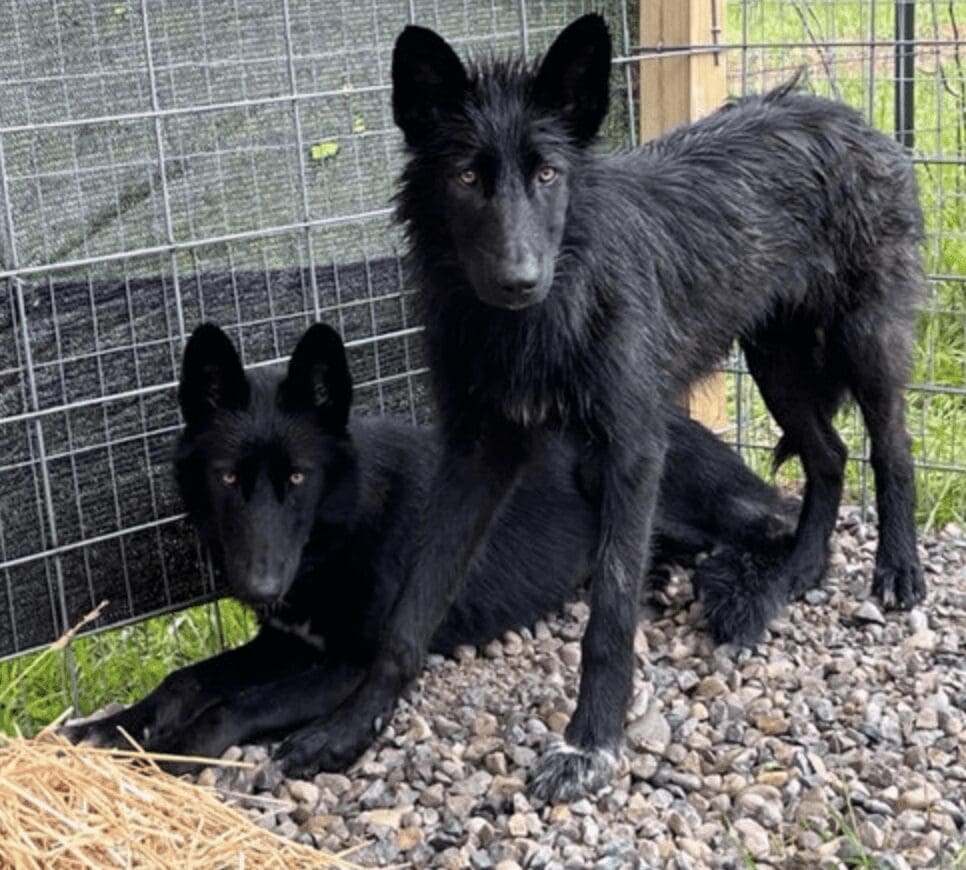
Forever home for “The 401 Girls” wolfdogs says the real story is the people in Rhode Island
by Nancy Thomas
The 401 Girls – confirmed now as sisters – formerly known as Oakland Beach’s Bella & Libby – and now known as Wiley & Willow – live and frolic at the Red Riding Hood Rescue Project.
Warwick literally (not literally) wrapped their arms around these beautiful ladies and saved them. The 6 month olds have had a rough start in life. Being housed in a house, obviously abused, and then let out into the unsuspecting community, Bella & Libby were strolling around quite friendly looking, digging into garbage cans and looking for food and shelter. The full story of their neglect and abuse has yet to come out as the case is winding its way through the court system.
Once comments started that they didn’t look like they were “all dog”, the theory was they were coyotes, and Warwick went into action to protect the people of the area as well as capture the “coyotes”. After their capture the comments changed from coyotes to “wolves” or “wolfdogs”. It seemed more obvious as time passed. And they weren’t adults – but approximately 6-month old puppies.
Key to the happy ending to the story was Warwick Mayor Picozzi who seemed to just know that these dogs were a little special, while their presence was of great concern for a community stunned by their beauty and seeming friendliness. “Without Mayor Picozzi’s kindness and dedication to these dogs, we’re sure what would happen in Rhode Island would be the dogs would have met a similar fate as has happened in other states where they are not allowed – they would have been euthanized. Instead, everyone in Warwick worked together to find us, help us arrange for getting the right van, equipping it, paying for it, and transporting them here. While we were already over capacity, we made a quick decision to accept the ladies and went about preparing an extra long pen for them,”Susan Vogt, Rescue co-founded said.
Susan says, “I’m deeply impressed with our neighbors in Rhode Island. They have been kind and generous, and still – to this day – boxes of toys from the Chewy pet company are being received for the 401 sisters – and their friends. The 401s have an ideal running pen – long and filled with the right kind of limestone pebble which helps when it rains and there is mud all around. Crushed gravel” is expensive but the Rescue is trying to use the material in all the animal enclosures so when it rains hard, they are not standing in a muddy mess, that later turns hard on their foot pads. We’re still fairly new here and always making improvements.”
Vogt can hardly get through the story without chuckling about how the big wolfdogs can get set off by the 401s, when they start to play with their new squeaky toys – and they all the animals are running and playing, too – “the squeaking and play is pretty funny to watch with these big animals”.
Some people from Rhode Island have even called wanting to come and visit with their families. Vogt notes that they are not open to the public – usually – but if a Rhode Islander comes to visit, they’ll open their doors and show them around. Vogt says if they were to open another shelter, they would want to in a state just like Rhode Island – “what is it about people there? So curious and kind and generous”?
The Red Riding Hood Rescue Project is a USDA licensed, nonprofit corporation dedicated to providing rescue, sanctuary, and lifetime support to wolfdogs in need, improving their lives with training and enrichment, and educating to encourage humane treatment and compassion.
The Red Riding Hood Rescue Project, on 20 acres in Middletown, Ohio
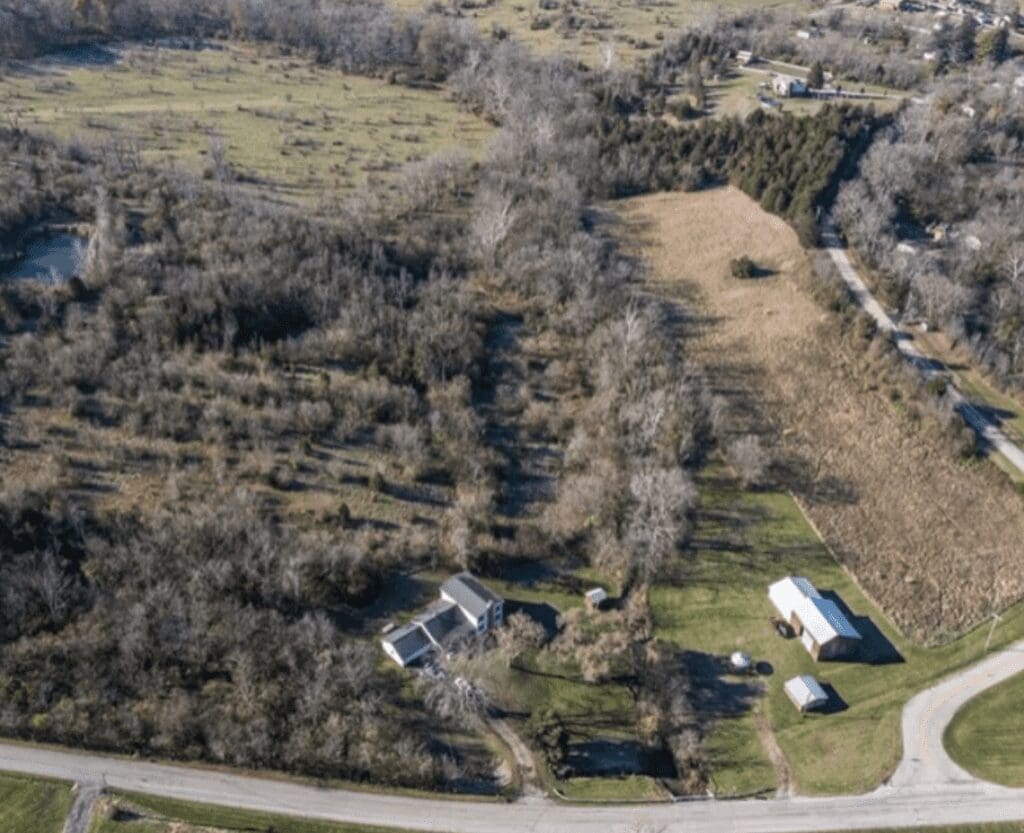
How did their project start?
“On a cold day just before Christmas in 2013, the owner of a wolfdog named Porter, who had kept the animal on a 30-foot chain for the first six years of his life, had decided to move away. When no home could be found for Porter, the owner called a mobile vet to end his life.
Fortunately for Porter, and for RRH Founder and rescuer of Porter Susan Vogt, that vet refused to end his life. Porter passed away in August of 2021, but his legacy of love remains. Susan says rescuing and caring for him over eight years is what inspired her to start a wolfdog sanctuary. “He’s the reason for all of this,” she says. “It all began with him.”
What is a wolfdog and where do they come from?
A wolfdog is a dog with recent wolf heritage. Wolfdogs are any cross of a wolf bred to a dog, a wolfdog bred to another wolfdog, or a wolfdog bred to a dog with varying amounts of wolf DNA. The majority of wolfdogs being produced now are from wolfdog to wolfdog pairings. Wolfdogs are purposely bred and sold by breeders in many states across the United States and their foundation animals have been captive bred. Many of these foundation animals are descendants from fur farms back in the 60’s and 70’s. Note: The term “wolf hybrid,” is not an accurate term. A ‘hybrid” is the offspring of two different species. Following reclassification of the dog by taxonomists in 1994, the domestic dog (canis lupus familiaris) is actually viewed as a domestic variant of the gray wolf (canis lupus). How much wolf is in that wolfdog? This question refers to the percentage of wolf in the wolfdog. The percentage can be determined roughly through phenotyping, which is making an educated guess based on various physical and behavioral traits. The only accurate way to prove wolf content is through a DNA test, Embark being the most reliable. The animals at The Red have Embark tests.
What are they “mixed with”?
Wolfdogs typically are mixed with German Shepherds, Alaskan Malamutes, and Siberian Huskies. These breeds, added to the wolf DNA, most resemble their wild cousins and maintain the ‘wolfy look’. What is the average lifespan of a wolfdog? Wolfdogs can live an average of 12-18 years. Their lifespan can largely depend on the dog breeds in the mix and the wolf content. Wolfdogs are also at risk for many hereditary disorders due to years of backyard breeding. There are very few places that can accept wolfdog surrenders and those facilities stay at capacity, so wolfdogs are a lifetime commitment.
A wolfdog is a conundrum
No one will have a pure wolf as a personal pet. Wolves are strictly regulated. Wolfdogs are NOT wild animals. They can not live in the wild. They are domestic animals with special needs. They require humans for their food and protection, and many of them thrive on companionship. Dumping a wolfdog is sentencing that animal to a death by starvation, disease, attacks, or a bullet.
Wolfdogs cannot be set free.
Wolfdogs are illegal in many states – including Rhode Island.
So there we are – not wild, not “domestic” in the sense of a home-living pet.
DNA tests for the sisters
Wolves they are!
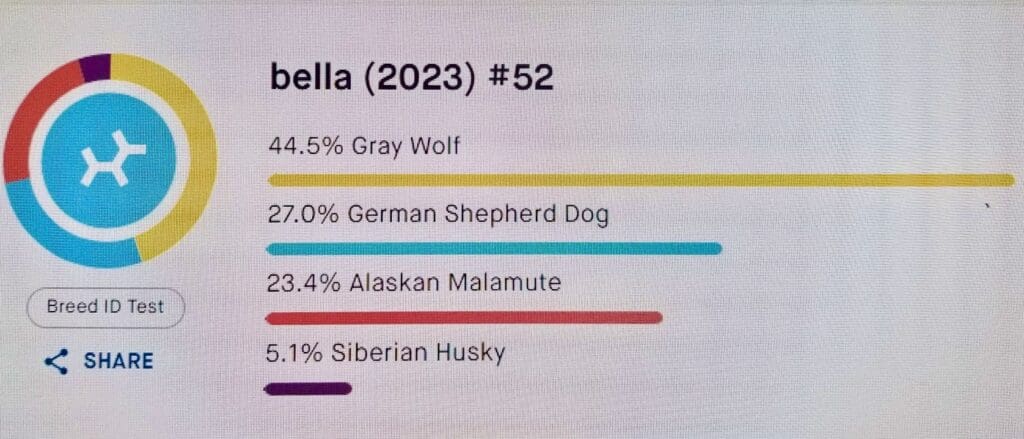
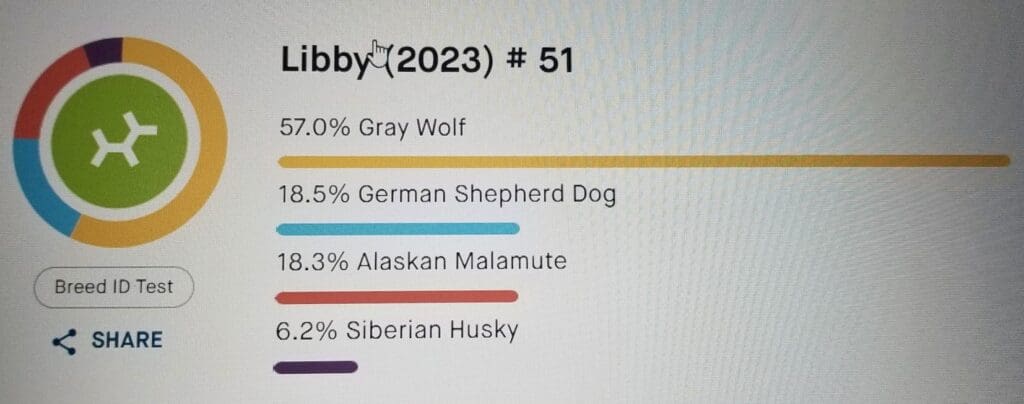
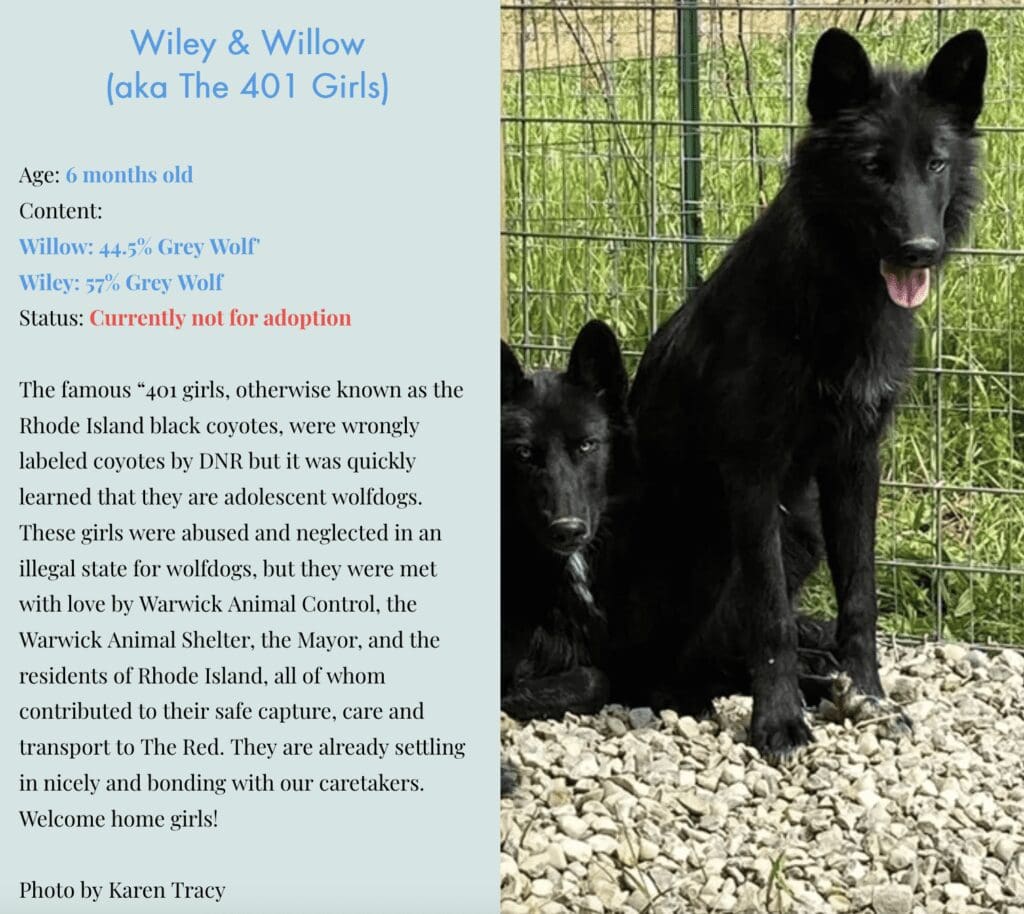
Read the story of the rescue of “The 401 Girls”, here!
https://shoutout.wix.com/so/96OWi89a5?languageTag=en
How you can help:
First, the Rescue is thrilled with the ongoing response from Rhode Islanders – from the messages, the follows on their Facebook page, and the packages of toys for the dogs – but also for monetary donations that allow them to buy the specifics – like limestone – and to care for the animals.
Donate to the Red Riding Hood Rescue Project, here!
https://www.rrh-project.com/donate
Go to their website for links to all their social media sites: www.rrh-project.com

Love stories with a happy ending!!
Beautiful wolfdogs!!
Thank you for your care and dedication for these animals!!